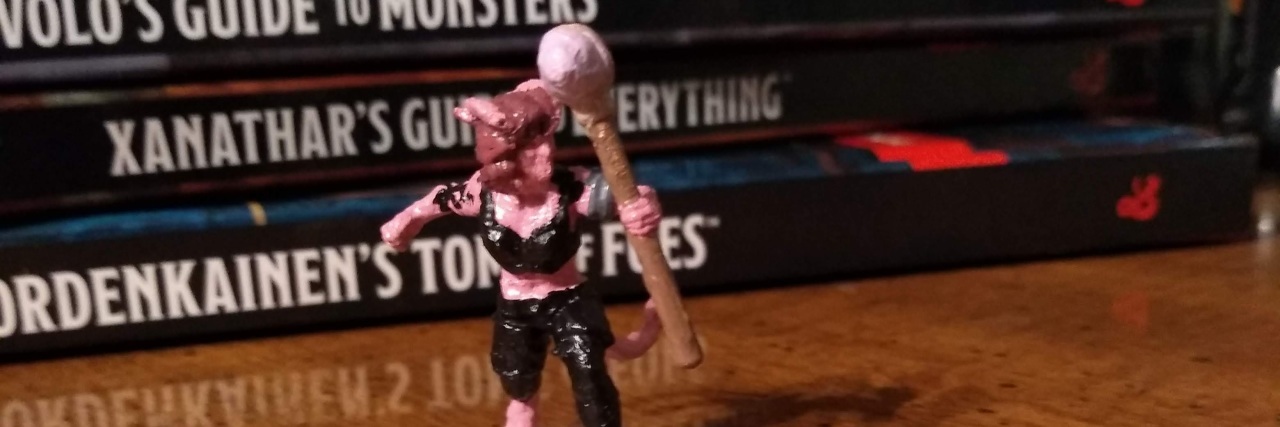I am a very angry person. It took me over 20 years to realize it, and several more to accept it (I’m actually still working on that), but regardless, it’s the truth. I am frequently filled with eye-watering rage, and I never had any idea what to do with all that anger.
For a long time, I simply turned it inward. That’s part of why I didn’t even realize how angry I really was for so long. Expressing all that anger felt inappropriate, shameful and even unsafe, but barely containing your rage so that everyone can tell you’re angry and you just aren’t saying anything felt just as bad and wrong in many ways. So I smothered it entirely. I refused to be angry, even when I was. But feelings don’t just disappear because you want them to (and this is a lesson my emotions continue to teach me over and over). In my case, my anger at others or at the world transformed into anger at myself. Self-loathing took over much of my personality, and it’s still an integral part of me today.
It’s only in the last year that I’ve started being able to recognize when my anger is transforming into self-loathing. It happens so quickly and silently that it actually requires a lot of effort to notice. I’m a painfully self-aware person, and this phenomenon still frequently slips under my radar.
It starts when someone does or says something I find to be fundamentally unfair, judgmental or unnecessarily cruel. As with most human beings, this makes me feel angry. Then, in the same instant, I become furious with myself and start feeling “weird.” My stomach hurts, I feel vaguely sad and my inner monologue takes a turn toward the deeply negative and judgmental. In moments, the original incident that made me mad has been pushed away (but not forgotten — it will likely pop up in my thoughts repeatedly for several months) and my own self-loathing has been drawn into the forefront instead.
For a long time, I saw these bouts of self-hatred as random episodes with no real cause, which only made the self-loathing worse because there I was, moping about myself for no damn reason. In reality, it turns out that feeling shame about your shame is a surefire way to get you so wrapped up in your own confusing emotions that you betray no trace of anger at someone or something else.
Obviously, this is not OK. My relationship with myself has been deeply eroded over the years by this unhealthy relationship with my own emotions, and I have a feeling much of the next decade of my life is going to be spent trying to forge a new, better connection with my feelings. I’ve gotten started on some of this work in therapy, especially when it comes to my anxiety and depression, but when it comes to my anger, one of my best tools is actually Dungeons & Dragons.
D&D is a fantasy roleplaying tabletop game where you create a character and go adventuring with other players’ characters to defeat various forces of evil. To create your character, you get to choose a class which determines which skills they are naturally drawn to or good at. My first character was a stoic Ranger, but I found her incredibly difficult to play. She dealt with her emotions by repressing them as well, and I found that really depressing to play out week after week when I was already doing plenty of it in my real life, so when an opportunity presented itself, I let that character go do other things and created a new one. Now, I play an impulsive Barbarian whose main skillset involves flying into a deadly rage three times a day. And it. is. glorious.
Her name is Marcyra and she is teaching me that even impulsive, red-hot rage is OK sometimes. Unlike me, anger doesn’t make Marcyra feel unsafe. It makes her come alive and feel more powerful than ever. Her rage gives her protection from things like murderous minotaurs and gelatinous cubes. Her anger has saved her friends’ lives many times over, and is objectively one of the best parts about her, even if it is sometimes inconvenient. Playing Marcyra has shown me that inconvenient doesn’t mean “bad,” and that sometimes reality simply is inconvenient, and denying that reality won’t change it.
I look forward to our weekly D&D sessions in large part because for a few hours, I get to be as pissed off and enraged as I want to be, and my shame brain takes a back seat for a while. I get to see all the amazing uses of anger and play a character who, like me, is full of rage, but unlike me, isn’t afraid of that rage. She’s actually incredibly well-adjusted. She has an in-game therapist who has helped her process her past trauma, and her rage, despite being somewhat morally gray, is not a symptom or problem but rather a healthy expression of herself.
If you’re reading this and realizing “…Oh shit, I too have been repressing my anger,” I highly recommend getting started with therapy and checking out my series of posts on how to find a therapist. Curious about rage in women specifically? Check out this recent TED talk by Soraya Chemaly. Want to know more about D&D? I highly recommend a series of videos called A Crap Guide to D&D if you’re looking for a laugh (seriously, I laughed so hard I cried), or D&D Beyond if you’re looking for real information.
A version of this article was previously published on the author’s blog.
Image via contributor.

